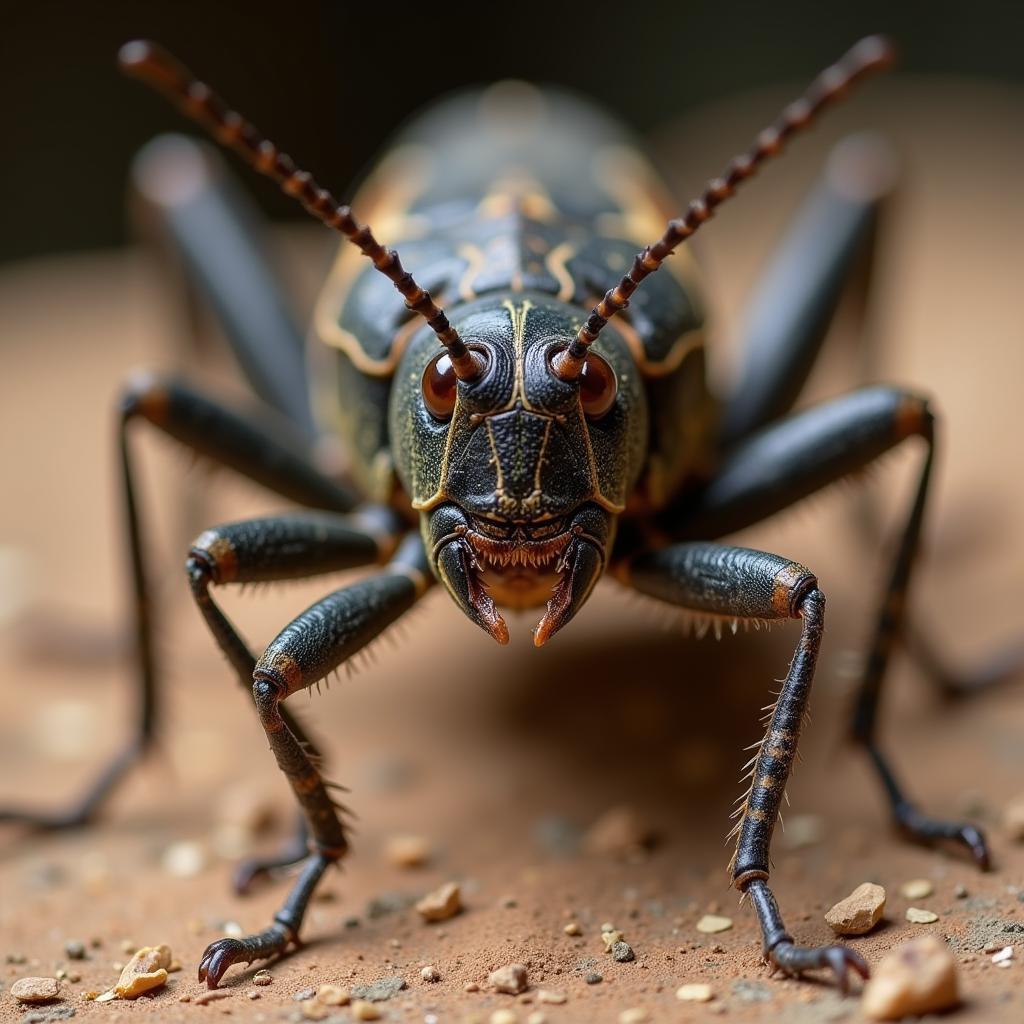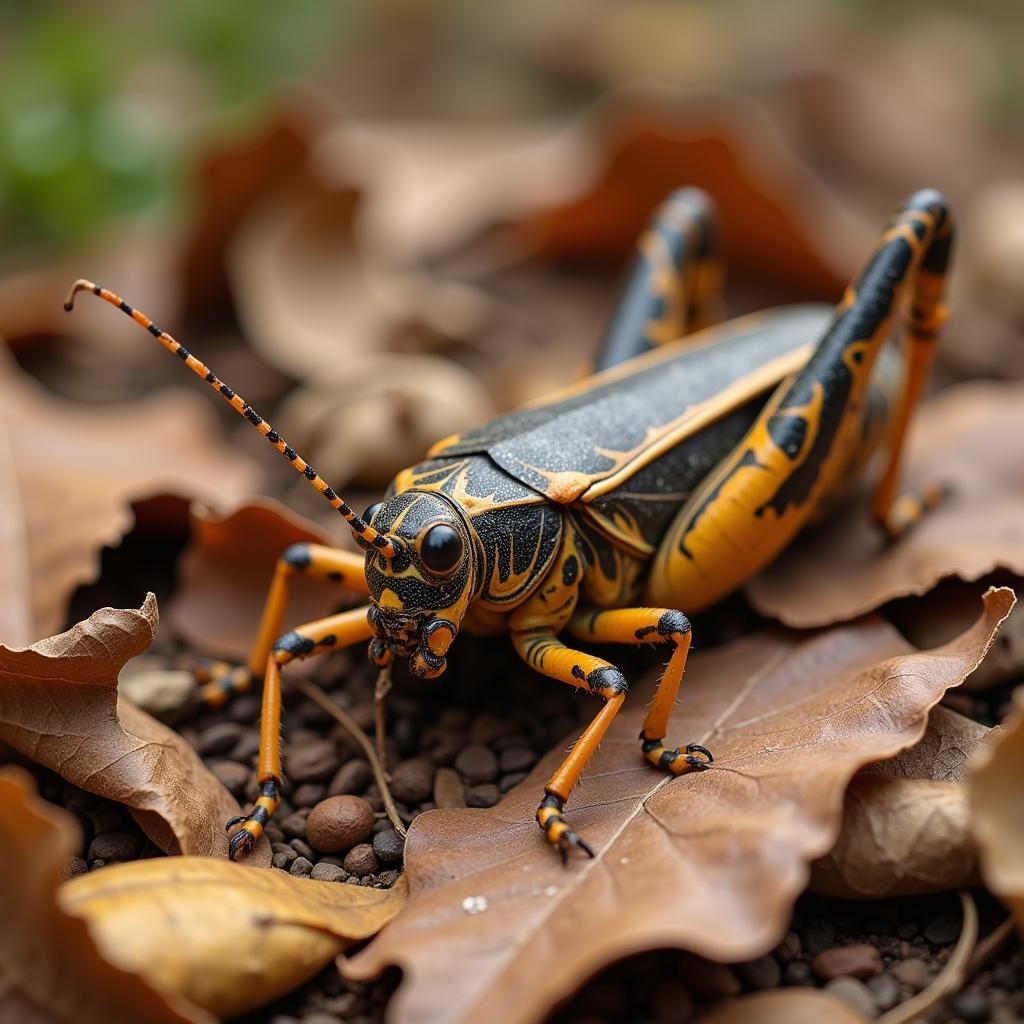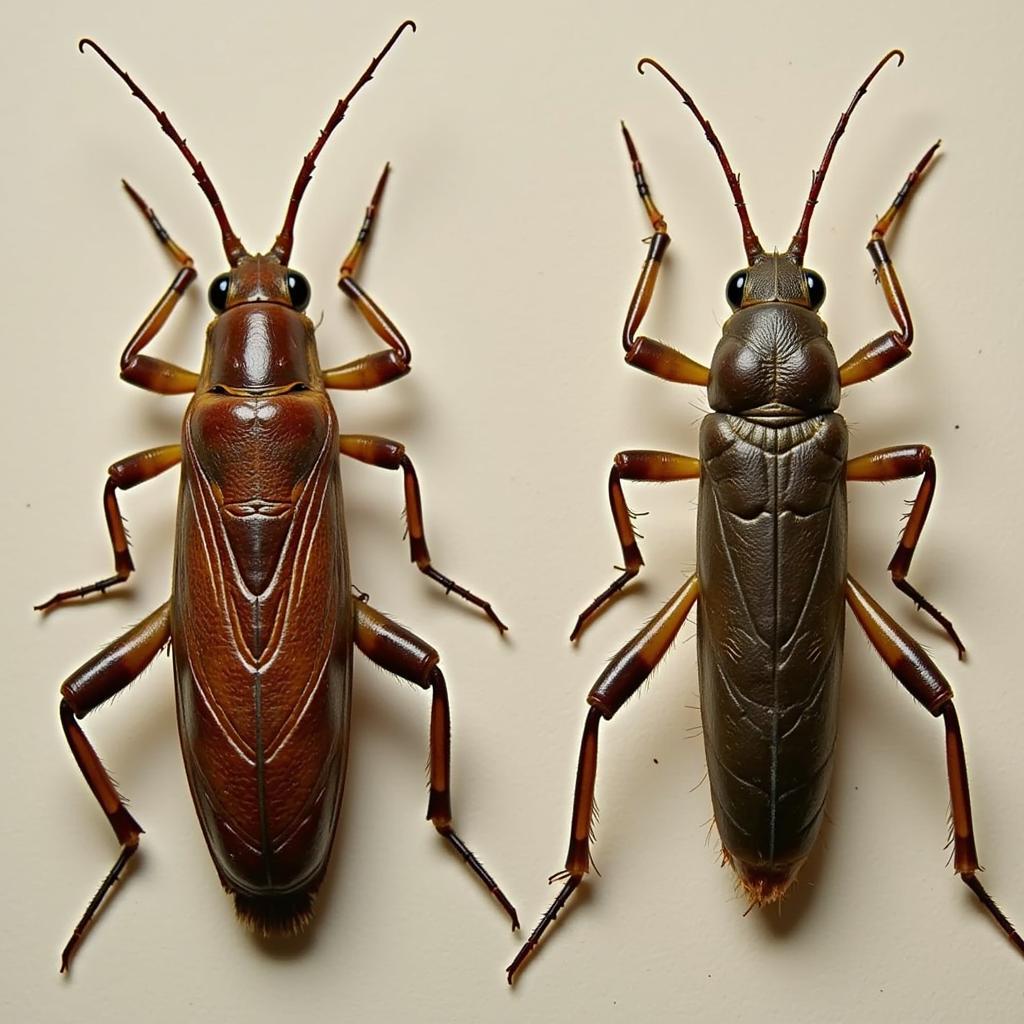Exploring the Fascinating World of the African Armored Cricket
The African Armored Cricket, a tiny yet remarkable creature, inhabits various regions across the African continent. Known for their unique armored exoskeleton and intriguing behaviors, these crickets have captivated the interest of entomologists and nature enthusiasts alike.
Unveiling the Secrets of the Armored Cricket
These crickets, belonging to the Rhaphidophoridae family, are wingless insects that rely on their powerful hind legs for jumping, much like their grasshopper relatives. Their most striking feature, however, is their tough, heavily-sclerotized exoskeleton, hence the name “armored cricket.” This armor provides protection from predators and the harsh environments they often inhabit.
 African armored cricket displaying its defense mechanism
African armored cricket displaying its defense mechanism
Habitat and Distribution
African armored crickets are highly adaptable and can be found in a range of habitats, from arid deserts and savannas to lush forests and caves. Their distribution spans across sub-Saharan Africa, with varying species adapting to specific ecological niches.
Dietary Habits: Adaptability and Survival
These crickets are primarily scavengers, feeding on decaying organic matter, fungi, and small insects. Their ability to thrive on a wide range of food sources contributes to their success in diverse environments.
 African armored cricket feeding on leaf litter in its natural habitat
African armored cricket feeding on leaf litter in its natural habitat
Life Cycle and Reproduction
The life cycle of the African armored cricket involves three stages: egg, nymph, and adult. Females lay their eggs in moist soil or crevices, and the nymphs undergo several molts before reaching adulthood. Interestingly, some species exhibit parental care, with females guarding their eggs and young nymphs.
The Role of Sound in the Cricket World
Like many other cricket species, African armored crickets communicate using sound. Males produce chirping sounds by rubbing their legs together to attract mates. However, their calls are often more subtle and lower in frequency compared to other cricket species.
 Male and female African armored crickets
Male and female African armored crickets
The Importance of African Armored Crickets in the Ecosystem
As scavengers, African armored crickets play a crucial role in nutrient cycling within their ecosystems. Their feeding habits help break down organic matter, returning essential nutrients to the soil.
Conclusion
The African armored cricket, with its fascinating adaptations and ecological importance, provides a glimpse into the rich biodiversity of the African continent. Their ability to thrive in challenging environments and their unique life cycle continues to intrigue researchers and nature enthusiasts, reminding us of the wonders that the natural world holds.




